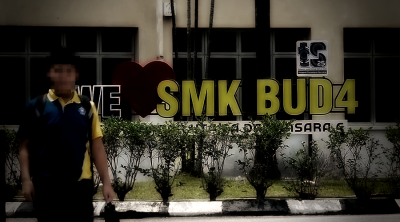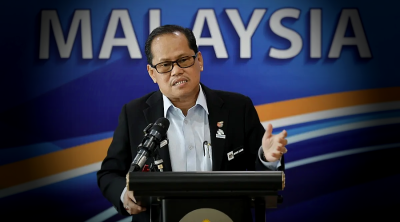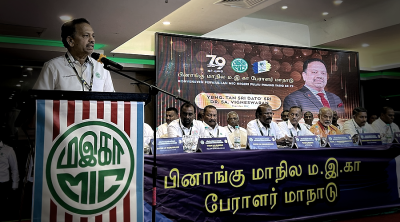
I have been away from campus for a long time and when it comes to bullying, my most vivid experiences and memories are of workplace bullying.
Returning to the topic of this article, whether bullying occurs on campus or in the workplace, once it is tolerated, it will only intensify.
What is most chilling is often not the bullying itself but the inaction of those supposed to bear responsibility for oversight and governance.
In cases of campus bullying, whether by education officials or principals, long-term tolerance of such behaviors is not only a grave negligence of their duty to educate individual students, but also a deeper reflection of the structural failure of the entire education system and its leadership.
Similarly, in the workplace, when supervisors shield senior colleagues and turn a blind eye, it reflects the lack of fairness and professionalism on the management.
It is a blemish on organizational culture and a symptom of systemic failure.
Today, campus bullying has come under intense public scrutiny because of Zara Qairina Mahathir’s death.
Let us first focus on school bullying.
Zara’s case not only exposed the long-ignored dark corners of campus life but also shook public confidence in institutional justice and the education system.
Student safety must be guaranteed, and that begins with school management.
Teachers and principals must shoulder full responsibility. Teachers must remain sensitive to abnormal signs in student behaviors in order to detect potential bullying or other issues early.
Fadhlina Sidek’s inaction and indecision will drag down the entire government, turning it into a political crisis and a hefty political cost for the Sabah state government and the Unity Government to shoulder.
In Zara’s case, as well as other tragedies involving school bullying, we often see schools “downplay major incidents as minor ones and dismiss minor ones altogether.”
Some teachers and school staff regard physical scuffles or verbal disputes among students as “harmless quarrels of growing up” and are reluctant to handle them seriously.
Little do they realize that such negligence is precisely the breeding ground for the bullying culture.
Behaviors that may seem “harmless” at first, once tolerated and repeated, can silently snowball into an irreversible storm.
For such students, schools should strengthen monitoring and counseling and intervene in a timely manner.
Through observation and record-keeping, these behaviors can serve as important early warning signs of bullying tendencies, enabling schools to act before problems worsen. Otherwise, once tragedy strikes and a young life is lost, regret and remedial efforts will be too late.
Teachers must become the strongest support system for students. Only when bullied students are no longer bound by fear can they summon the courage to face their tormentors.
Students themselves are the most effective whistleblowers—but this requires them to trust school leaders and believe that teachers will stand up for justice.
Once bullying is confirmed, teachers or school administrators must intervene immediately and decisively to address misconduct, maintain school discipline, and prevent further escalation.
It is only in a safe, inclusive, and respectful school environment that students will be willing to step forward, expose bullying, and help create a healthier learning atmosphere.
While schools must stand behind students, the Ministry of Education must instruct schools to do everything possible to protect them.
The Ministry has clearly not done enough. Mere slogans cannot serve as warnings or deterrents to students with bullying tendencies. Only with stricter supervisory mechanisms and accountability systems can vulnerable students be truly protected and campus safety and trust rebuilt.
If Education Minister Fadhlina Sidek continues to act “softly and indecisively,” not handling the issue well, it could easily drag down the entire government, turning it into a political crisis and a heavy political cost for the Sabah state government and the Unity Government to shoulder.
Education is the foundation of nation-building and the cornerstone of the country’s future. If a government cannot even manage education properly, it is not only failing the next generation, but also exposing its overall incompetence in institutional development, resource allocation, and value guidance.
Prime Minister Datuk Seri Anwar Ibrahim and Fadhlina must not underestimate the seriousness of this issue.
Turning back to the workplace, if seasoned employees exploit their seniority to bully newcomers and supervisors side with their old allies, disheartened new employees may choose to resign and seek opportunities elsewhere.
In the end, those so-called “dominant” veterans, along with incompetent supervisors, become a liability to the company.
Similarly, if top management fails to detect or address these internal problems, it will inevitably harm the organization in its development, dampen morale, and cast a shadow over the company’s future.
(Anthony Chong Lip Teck is Sin Chew Daily Leader Writer.)
ADVERTISEMENT
ADVERTISEMENT








































